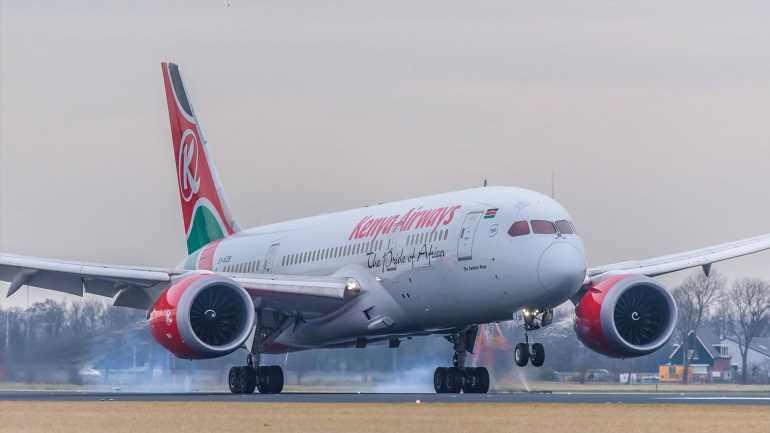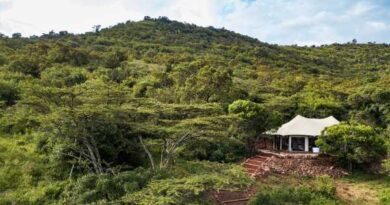Resumption of U.S. flights builds traveler confidence
Delta Air Lines, United Airlines and Kenya Airways have all resumed regular flights between the United States and sub-Saharan Africa. It is a great first step toward rebuilding traveler confidence, but a lot more still needs to be done, according to industry players.
On Aug. 2, Delta resumed its nonstop service between Atlanta and Johannesburg. The airline said it has been pleased with the route’s performance.
“The flight is booking well, which is indicative of the pent-up demand for travel to South Africa,” Jimmy Eichelgruen, Delta’s director of sales for Africa, the Middle East and India, said. “We are eagerly awaiting the U.S. to reopen to leisure and other nonessential travel from South Africa, which will fuel further demand.”
Related: Delta and Kenya Airways expand codesharing
United Airlines launched direct flights between New York and Johannesburg in June. A spokesperson for the airline told Travel Weekly that the airline is pleased with the uptake and intends to also resume its seasonal nonstop Cape Town-New York/Newark service shortly. Meanwhile, Kenya Airways increased its flights to the U.S. to three times a week following a healthy increase in demand.
“It is very encouraging to see airline uplift increase from the U.S., which will bode well for increased travel to Africa,” said Lucille Sive, CEO of The Travel Corporation’s Africa Division.
Related: Air Senegal will fly to New York and Baltimore/Washington areas
Sive said the introduction of a direct flight to Kenya in the past few months translated in increased demand. “East Africa is trending, especially Kenya and Tanzania. Kenya has always been considered the ‘safari destination,'” she said.
According to Sive, we will see a similar trend for South Africa and Botswana, with increased bookings next year. “South Africa has always been a perennial favorite for U.S. travelers and will continue to be so because of the wide range of activities that will check off any bucket list,” she said.
Others, however, said that the direct flights haven’t necessarily increased demand, but they have instilled a sense of confidence for travelers.
“The flights reassure clients already thinking of taking a safari, by providing further protection from Covid infection with no international connecting flights,” said Jim Holden, of Holden Safaris.
Raza Visram, of AfricanMecca Safaris, said he has seen travelers reduce their booking time from months to a few weeks before arrival. “They are looking for the most direct access, avoiding hot spots with busy or heavy traffic tourism volumes.”
Direct flights are a great first step to boost demand and increase traveler confidence, but more needs to be done.
Elizabeth Gordon, co-founder of Extraordinary Journeys, said, “Until Southern Africa can commit to stabilizing their Covid regulations and curfews, I’m not sure we’re going to see the full draw of those direct flights.”
Gordon said East Africa has been popular because it has been stable with its Covid and testing procedures for over a year. “Travelers recognize and appreciate how reliable it is. Compared to South Africa and Botswana, in particular, who have been on a roller coaster of assorted curfews and restrictions being imposed overnight, Kenya is an option travelers know they can count on.”
Communication on Covid-19
Clearly communicated safety measures, streamlined Covid-19 protocols and flexibility will be key to attracting American travelers to Southern Africa.
“It’s important that lodges and ground handlers have sufficient well-being protocols and that they are on top of them, also providing easy and affordable access to PCR testing,” Sive said. “People want to make sure all their protocols are being handled properly, such as lodges and game vehicles being sanitized correctly and efficiently.”
One issue that keeps popping up with travelers is the question of what will happen if they get sick and the hospitals are either full or not up to standard, said Mefi Pishori Alapat, owner Journey to Africa.
“I try to reassure them that we have facilities that can cater to Western standards,” she said, “but this is an area our ground handlers and lodges may need to look into together with us tour operators to reassure guests.”
Holden said the best way for lodges and ground handlers to attract more American holidaymakers is to keep providing information on all the measures to keep clients safe from covid while visiting Africa. He said ground handlers need to provide good evidence, with official numbers and statistics, of the number of vaccinated people in the relevant destination, the declining infection rate and effective prevention measures.
Flexibility is key
According to Sive, U.S. travelers are willing to spend more for the trip of a lifetime, but they want to make sure the conditions are flexible.
“It is essential for lodges and ground handlers to communicate in real time with regards to protocol changes in the destination to provide confidence for travelers to put money down,” she said. “Lodges and ground operators who offer the greatest flexibility in booking terms and conditions will see increased sales.”
Gordon agreed that it is imperative that tour operators continue to be flexible about postponements, noting that the emergence of the delta variant has created uncertainty for families traveling with children, in particular.
“People need the reassurance that they will be able to shift their plans if need be [like they’re getting from the airlines] and won’t be forced to do something they’re uncomfortable with, for significant financial reasons,” she said.
Sive added that the need for flexibility also extends to solo travel. “I think it’s time for us as an industry to relook at solo travel,” she said. “Because people want to travel with a friend but not necessarily share a bedroom and bathroom, we are offering more itineraries that have no single supplement or offer a low cost for single supplement.”
Source: Read Full Article




